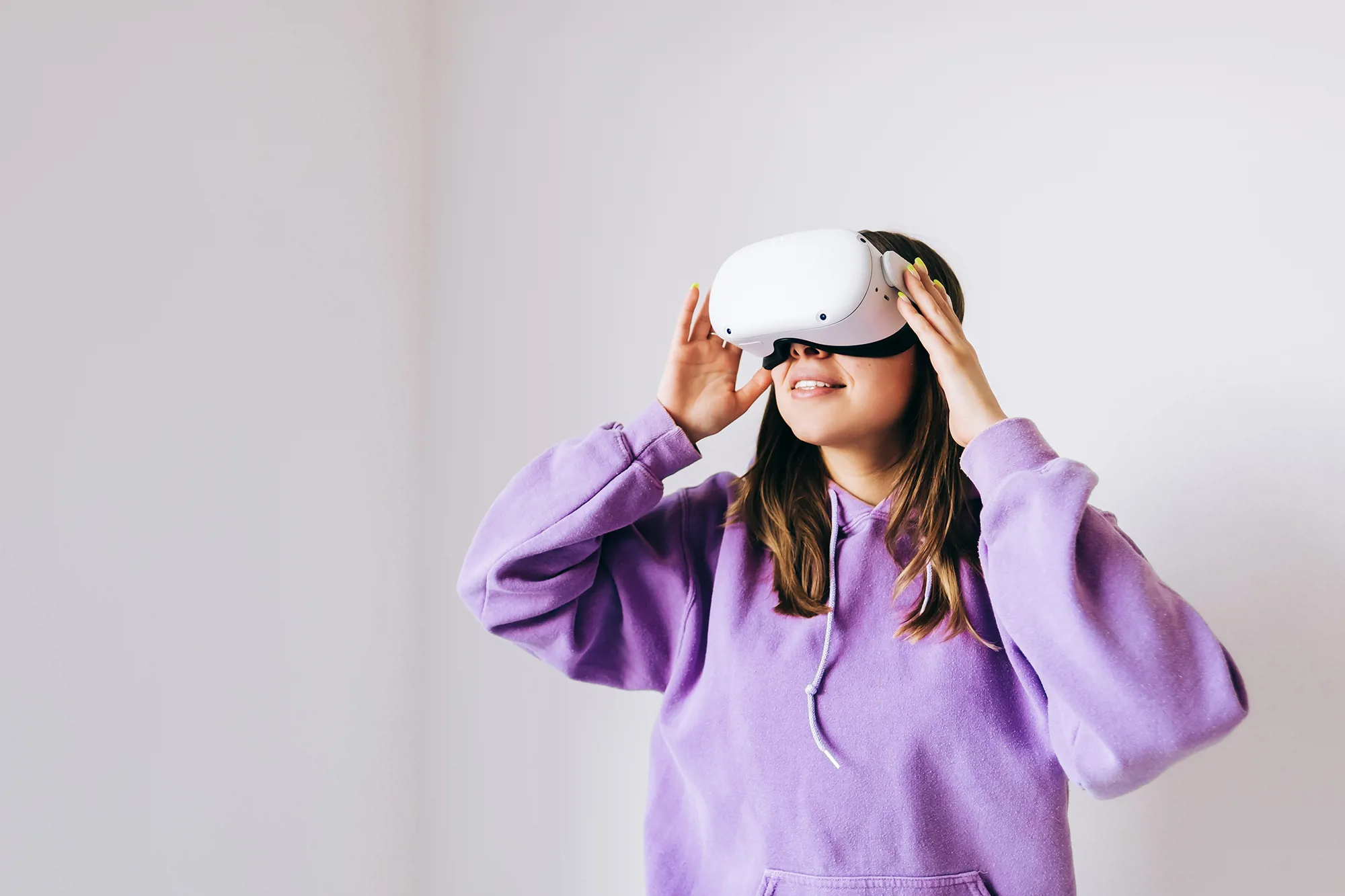Read our new report on safeguarding the metaverse
Published: Tue 19 Apr 2022
Published: Tue 19 Apr 2022
Our recently published report explores who should be responsible for safeguarding users exploring the metaverse.
The new guide is about the existing and future harms in virtual reality and the metaverse to support UK immersive technology policymaking.
The metaverse is a comparatively recent addition to the vocabulary of the digital media landscape. It is an umbrella marketing term that brings together related technologies such as virtual reality (VR), augmented reality (AR), the internet, computer gaming and digital communications.

As a network of connected 3D virtual worlds, the metaverse provides increased positive
opportunities in medical, leisure, creative and industrial sectors, allowing multiple users to interact in a virtual space without the need for real-world proximity. The metaverse also brings with it various threats and vulnerabilities for its users that need to be addressed at industry, regulatory and government levels.
To safeguard the metaverse we must understand the harms users are exposed to. A wide range of VR users say the metaverse feels like an unsafe wild west. Harassment and abuse are common experiences is this space. This needs addressing.
It is not always clear who is responsible for monitoring or responding to negative behaviour whether that be the individual, community, platform or government. User-driven safety features aimed at addressing harassment and abuse, for instance the block and mute feature, are primarily instigated by the victim. By the time a victim has found the block, mute and report button, the psychological damage has often already been done.
Whilst the Online Safety Bill does apply to immersive technologies and the metaverse, it needs some adaptations to be properly fit for purpose. The bill is currently focussed on content that is published rather than activity that happens. In the metaverse, activity happens in real-time. The bill must be adapted to work well in these live, active contexts that are more akin to real-life events.